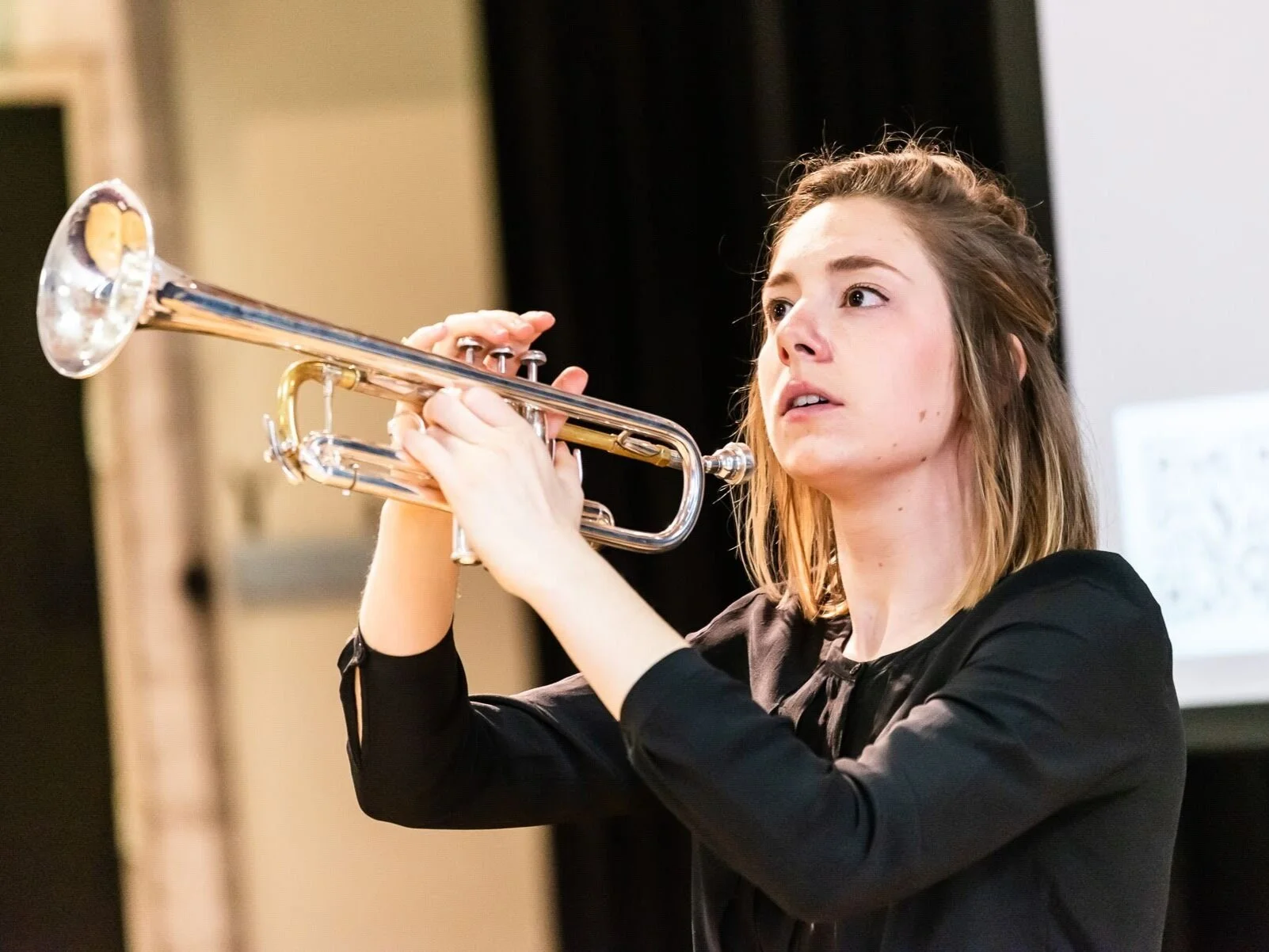“Embodiment and Empowerment” first and foremost aims to encourage a discussion about diversity and inclusion in contemporary performance and new music. Recent political and social movements have encouraged cultural institutions to examine how diversity operates within their various structures; however, instead of directing attention towards these institutions, this research focuses on how musicians can be empowered through the physical aspects of performance. This research embraces the physical-visual aspect of musical performance and seeks to find creative ways of building a counter-culture to the dominant narrative of Western art music and the aggression towards female, trans, and of-color bodies. The research will also cover musics that encourage physical engagement and how a pedagogy of embodiment can spur social change in the artistic world.
This research draws upon the ideologies of both theorists, composers, and performers, including Marcus Weiss’ “Tonus and Music Performance,” John Shepherd’s “Music and Cultural Theory,” the Laban method, Jennifer Walshe’s “The New Discipline” - specifically Jennifer Walshe’s postulation that “perhaps we are finally willing to accept that the bodies playing the music are part of the music, that they’re present, they’re valid and they inform our listening whether subconsciously or consciously.” This research will explore whether composers and performers can form a new association between timbre, sound, and the physical body, as well as integrate aspects of artificial intelligence to examine how the growth of the digital culture impacts the perceived relationship between mind, body, and music.
“Embodiment and Empowerment” is grown from Lusche’s masters research project, “Karlheinz Stockhausen’s ‘ORCHESTER-FINALISTEN’: Musical Embodiment and Empowerment”, which she completed in 2019 at the Royal Conservatoire The Hague.
More information available here

